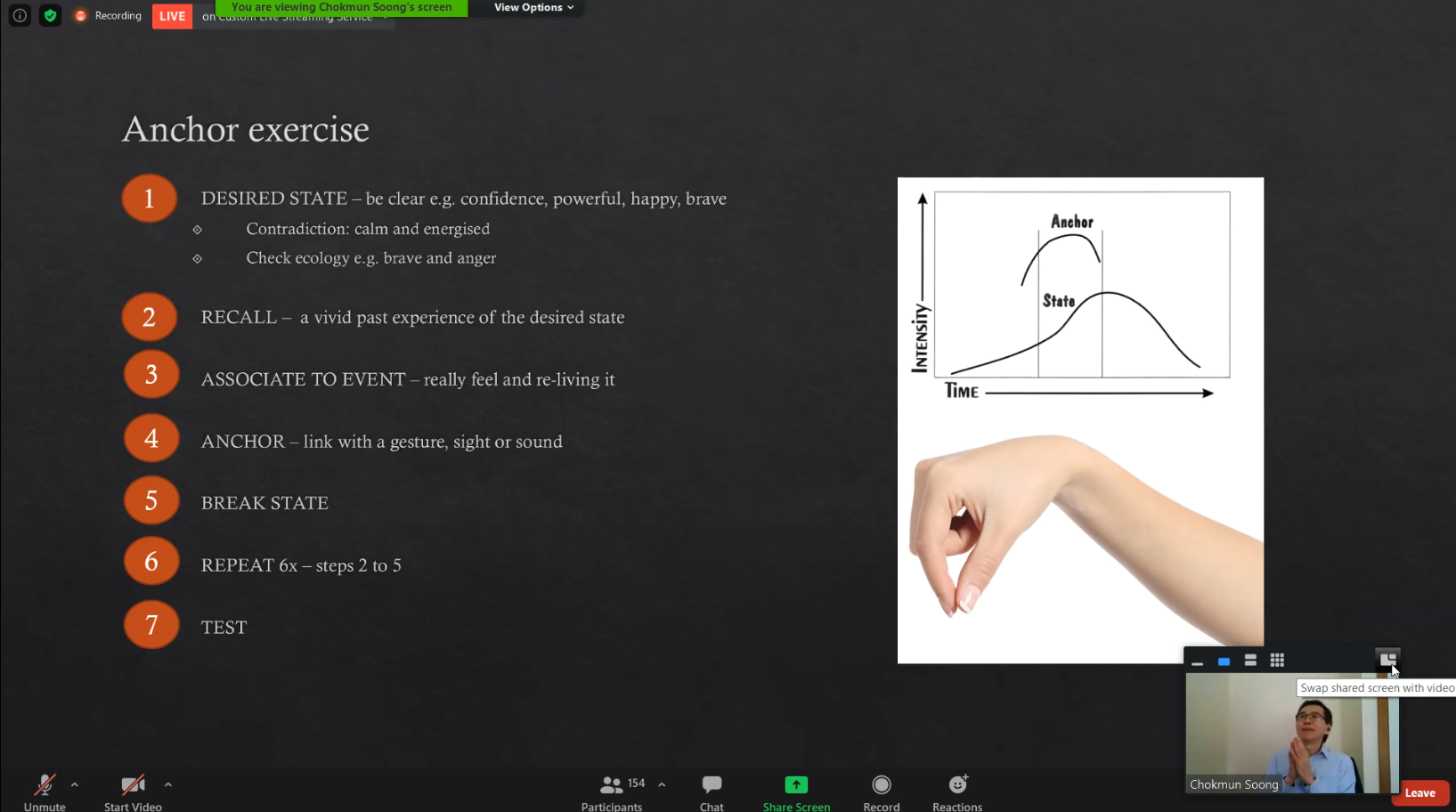
![]()

UTAR
Centre for Corporate and Community
Development (CCCD) organised a webinar titled “Conquer Performance
Anxiety in the Workplace” on 3 September 2021 via Zoom. The webinar aimed to
create awareness about performance anxiety in the workplace and equip
participants with ways to overcome it using techniques from Neuro-Linguistic
Programming (NLP).
.png)
Soong sharing the ways to conquer performance
anxieties in the workplace
Present to deliver
the webinar was Chokmun Soong, a certified NLP coach and trainer at Neuro
Linguistic Programming Association of Australia (NLPAA). The webinar was
moderated by Faculty of Arts and Social Science lecturer Sanggari Krishnan.
The topics covered at
the webinar were introduction to anxiety, common workplace anxieties, types
of anxiety and its symptoms, ways to handle anxiety and approaches to
conquer anxieties. During the
webinar, Soong also demonstrated one of the NLP techniques, namely the
anxiety-relieving approach as an anchoring exercise to the participants.
Soong said at the
beginning of the webinar, “Anxiety is not only restricted to the workplace;
anxiety is present in our everyday life. But let me emphasise, some sort of
stress is important for us to move, without that stress, we will probably
not move, however too much of stress will cause anxiety.”
He shared the
symptoms of anxiety, “The signs and symptoms of anxiety include sweating
forehead, shaking voice, dry mouth, racing heart, facial and body twitch,
and many more.” “NLP has an array of techniques to handle anxiety. These
techniques include anchoring, fast phobias, swish patterns, timeline and
submodalities. I will be focusing on the anchoring technique,” Soong added.
Soong explained the
Anchoring concept, “In the late 1800s and early 1900s, Ivan Pavlov, a
Russian scientist, did some research with dogs where he was able to get them
to associate eating with the ringing of a bell. After ringing the bell
before feeding them a number of times, the dogs started to salivate just at
the sound of the bell alone. Pavlov’s experiment also known as the Pavlov’s
Dogs was called Classical Conditioning or Stimulus-Response. Anchor is a
specific stimulus that brings up a particular memory and state of body and
mind.”

.png)
Soong explaining anxiety-relieving approach with a
demonstration
Soong concluded,
“Performance anxiety, be it speaking to a group and individual or performing
a task, can create unnecessary stress to self and communicate negative
impressions to others. Through this sharing session, I hope the participants
will learn how to quickly and effectively manage their performance anxieties
with techniques from NLP so that whatever the performance is, be it speaking
on stage, meeting with your boss or speaking in a meeting, you will have the
confidence to do it.”
The webinar then saw an active interaction between the speaker and the
participants. The talk ended with an extensive yet insightful Q&A session.
Wholly owned by UTAR Education Foundation (200201010564(578227-M)) LEGAL STATEMENT TERM OF USAGE PRIVACY NOTICE